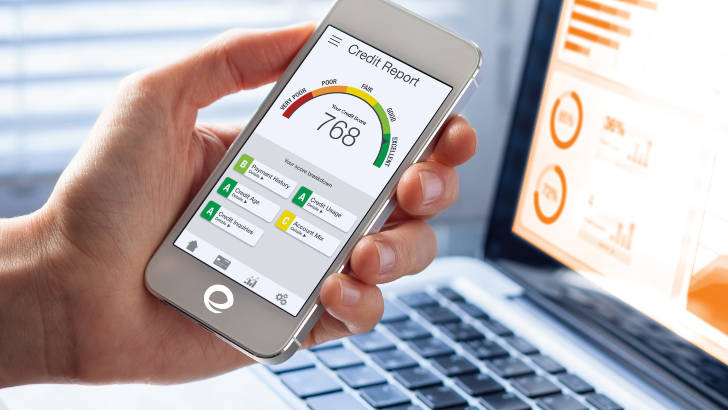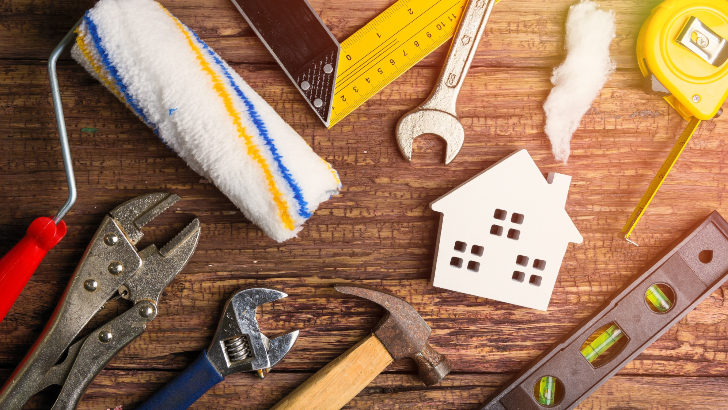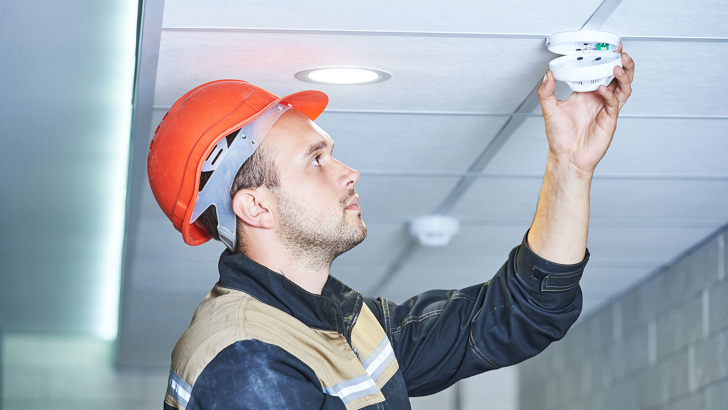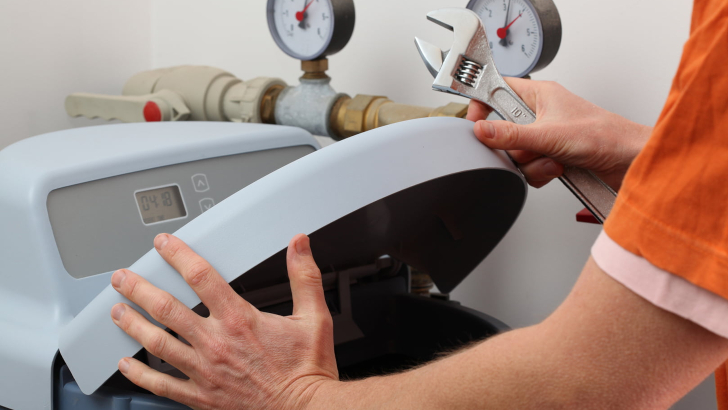Savvy homeowners take the time to learn how to care for their homes, which is often the most significant investment they will ever make. This includes knowing when to replace the furnace or water heater, handling emergencies such as water leaks or electrical issues, and keeping an eye out for signs of major maintenance issues such as a cracked foundation or leaky roof. Homeowners who want to cut costs should also understand how different systems and equipment can affect their monthly budget. Think you've mastered the knowledge and skills of being a homeowner? Take this quiz to find out!
The most common type of rider on a homeowner’s insurance policy?
Scheduled Personal Property Coverage
Scheduled Personal Property Coverage
Scheduled personal property is a supplemental insurance policy that extends coverage beyond the standard protection provided in a homeowners’ insurance policy. By purchasing a scheduled personal property policy, owners can ensure full coverage of expensive items, such as jewelry, in the event of a claim. Read your policy to understand what perils it covers, your coverage limits and any exclusions.
What is the recommended amount to keep on hand for home maintenance issues or emergencies?
10% of your monthly income
1-4% of your home’s value
The amount of your down payment
1-4% of your home’s value
Set aside a portion of your monthly budget in a home repair fund or emergency fund. Keeping the money separate also makes it harder to spend it on something else. Even a small amount can quickly add up. A rule of thumb is to set aside 1%-4% of your home’s value for a home maintenance fund.
What is the highest ROI area of your home to remodel?
Minor Bathroom Remodel
Depending on the square footage, the average cost to gut and remodel a house can be anywhere between $100,000 – $200,0004. The national average bath remodel ROI is 70.1%. That’s based on an average cost of $19,134, with an average return of $13,422.
What is the most popular use of cash-out refinance funds?
Major home renovation
Using cash from your equity can be a great solution for big-ticket renovations. Not only can you avoid adding to credit card debt, but the right projects could increase the value of the home for future sale. Some of the most popular and potentially profitable home improvements include new kitchens, adding a bathroom, deck, new roof, or certain energy-efficient upgrades.
How are your taxes affected in the year of a new home purchase? Choose the true statement
Closing costs are always tax deductible.
All tax incurred during the purchase year is billed separately to the seller.
Prepaying mortgage points can help lower your interest rate.
You can claim PMI as an expense in total no matter how the amount of your adjusted gross income.
Prepaying mortgage points can help lower your interest rate.
Generally speaking, 1 mortgage point is worth 1% of the loan. Paying for a point upfront will lower the interest rate by .125% to .250%, depending on the lender. Mortgage interest is tax-deductible, so provided your mortgage points fit certain criteria, this prepaid interest payment is tax-deductible, too.
Why are mortgage refinance rates higher than home purchase rates?
Refinance raises the debt-to-income ratio of the borrower.
Borrowers have a lower default risk.
Lenders change this at their discretion.
Refinance raises the debt-to-income ratio of the borrower.
In the event that the mortgage is refinanced, the new loan amount is $225,000, which includes any closing costs that are financed into the loan. The ratio of their debt to their income also goes up, in addition to the rise in their loan-to-value ratio. Because of the higher likelihood that they will not pay back the loan, the interest rate that is offered to these borrowers is typically higher than the APR offered to other borrowers.
What does a home builder’s warranty cover on new construction? Choose the true statement.
Coverage may not be available until the 3rd year after closing.
Extended coverage for structural defects must be added as an insurance rider.
Load bearing walls and partitions are never covered in a builder’s warranty.
Typical builder’s warranties are extended 50 years after purchase.
Coverage may not be available until the 3rd year after closing.
It is important to verify the beginning date of the warranty coverage. Some home warranty providers do not begin providing coverage until the third year after the closing on the property. If the signs of the structural defects appeared in the first or second year of the warranty, then the builder is responsible for making any necessary repairs throughout the duration of the warranty.
What happens to your credit score immediately after refinancing?
Your credit score remains the same.
Your credit score will increase sharply.
Your credit score will appear below 600 for 1-3 months.
Your credit score will decrease slightly.
Your credit score will decrease slightly.
When the new loan’s balance reaches 100 percent of the amount it was borrowed initially, your debt to income ratio will increase, which will have a slight negative impact on your credit score. This decrease in credit score is only temporary, and the numbers should continue to improve as the new loan is paid off.
What are the most common maintenance issues in the first year of home ownership?
Electrical
Some of the most common repairs involved electrical (40%), drainage (39%), and roofing (37%). Other homeowners reported dealing with waterproofing, tile repair, cigarette smell, insulation, mold, and bugs, according to HomeAdvisor’s report.
How far in advance is it recommended to turn on utilities when approaching closing?
At least 5 days before closing
You should wait to set up utilities until after closing.
At least 5 days before closing
One of the biggest questions we are asked when setting up utilities for our customer is: why do we need to set up the services so far in advance? There are several reasons why you should set-up services at least 5 days in advance.
You will need services when you move into your new home, the seller might shut-off services on their move date (even though this is not recommended, it happens often).
If the service is turned off, you will typically incur reconnection and/or additional service fees.
It could take up to 5 days for a request to be processed.
Most utility companies do not work weekends, so if you are closing late on a Friday you might not be able to request service until Monday, which could cause other issues during your move.
In hot or cold temperatures you could end up with mold or broken pipes and water damage to your new home.
By scheduling early we can coordinate installations that require you to be present in the same time-frame.
Waiting ’til closing day to put a service request for any of the services, you might not be able to get a quick turnaround. Another issue with a last minute request is that you might need to pay an additional deposit that you haven’t budgeted for.
What parts of the home do fires most often start?
Small bathrooms with no exterior walls
Kitchen & Laundry Room
Home fires are more likely to start in the kitchen than any other room in the home. The second leading cause of home fires are heating sources like wood stoves, and fireplaces. Fires caused by smoking are the leading cause of deaths.
How often should you change smoke detector batteries?
Every 6 months to 1 year
est smoke alarms every month by pressing their test buttons. If your alarms use regular batteries, swap in fresh batteries at least once a year. A “chirping” sound means that it’s time to change batteries. Because alarm sensors wear out, replace each alarm at least every 10 years.
What item on a home maintenance schedule requires completion most regularly?
Cleaning kitchen exhaust fan filter
Cleaning the water softener and replenishing salt
Cleaning the water softener and replenishing salt
It is recommended that you clean out the water softener in your home once a month and top it off with salt whenever it gets low. Once a year, depending on the season, tasks such as sealing the tile grout, cleaning the kitchen exhaust fan, and inspecting any fireplaces should be completed in order to be adequately prepared for the hot summer or the cold winter conditions.
It’s not a great day for you! 
You failed. But good try!
Your score falls somewhere in the middle!
You definitely need to learn more about being a homeowner. 
Great job. You nailed the quiz!
You are definitely ready for your new home. 
[giveaway id=12098]

























